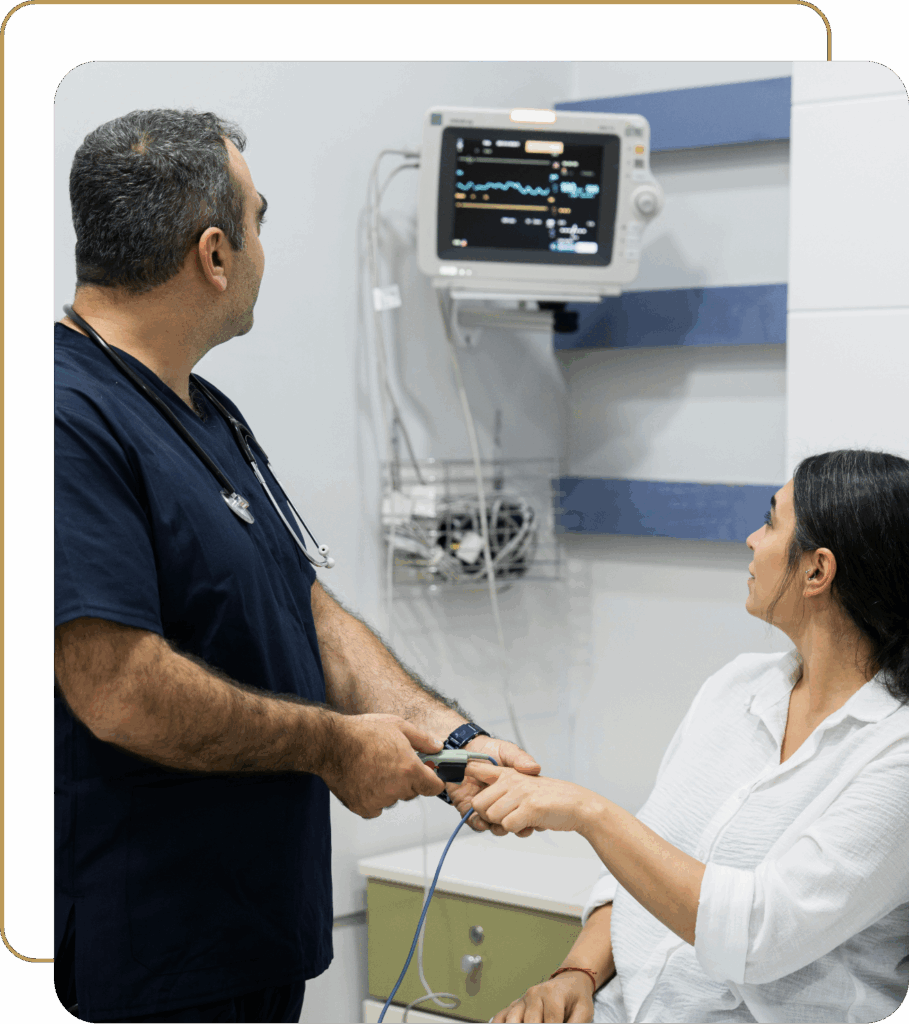Cybersecurity Services for Healthcare Providers
Healthcare organizations face unprecedented cybersecurity challenges today. With patient data commanding premium prices on the dark web and cyberattacks becoming increasingly sophisticated, medical practices need more than basic IT security. They need specialized protection designed for the unique demands of healthcare delivery.
At Xantrion, we understand that protecting patient data isn’t just about technology; it’s about maintaining trust, ensuring continuity of care, and meeting stringent regulatory requirements. Our healthcare cybersecurity services combine deep industry expertise with proactive security measures to keep your practice safe from evolving threats.


Why Healthcare Providers Need Specialized Cybersecurity
Cybercriminals see healthcare as a high-value target, leading to a surge in both the number and complexity of attacks. Unlike other sectors, healthcare organizations face the added pressure of protecting life-critical systems and navigating intense regulatory challenges while maintaining seamless access to patient information.
Patient Data is a Prime Target
Medical records containing personal, financial, and health information are more valuable to cybercriminals than credit card numbers alone. That’s because they can be leveraged for a broader range of fraudulent activities long after stolen credit card numbers get canceled.
The latest events reveal the true extent of the risk. The 2024 Change Healthcare ransomware attack, the largest-ever breach of a healthcare organization, exposed data from 190 million people, while 2025’s attack on Kettering Health led to canceled procedures at more than 100 medical centers and clinics. The Change Healthcare attackers extorted $22 million, demonstrating how devastating these attacks can be for both organizations and patients.

Compliance Requirements Are Evolving
The proposed updates to the HIPAA Security Rule introduce a range of new requirements that will fundamentally change how healthcare organizations approach cybersecurity. The 393 pages of proposed changes address common compliance deficiencies identified through government investigations and reflect the dramatic shifts in healthcare technology since the original Security Rule was published.
Key proposed requirements include:
- Mandatory annual security audits
- Technology asset inventories updated at least every 12 months
- Enhanced risk analysis procedures
- Specific incident response timelines
- Encryption for all electronic protected health information (ePHI) at rest and in transit
- Multi-factor authentication
- Vulnerability scanning every six months
- Annual penetration testing.
All underscore the reality that compliance is no one-time project; it’s an ongoing discipline that requires continuous attention and expertise.
How Xantrion Supports Healthcare Cybersecurity
Risk Assessments and Gap Analysis
Effective cybersecurity begins with understanding your current vulnerabilities. Our risk assessment process combines technical analysis with practical insights gained from years of healthcare experience.
Our assessments examine not just technical vulnerabilities but also operational risks and compliance gaps. We evaluate your entire technology ecosystem, from EHR systems to medical devices, identifying potential entry points for attackers and areas where your current controls may fall short of regulatory requirements.
HIPAA-Compliant IT Solutions
Meeting HIPAA requirements demands more than checking boxes. It requires integrating security into every aspect of your IT operations. Our HIPAA-compliant solutions address all aspects of the Security Rule while supporting your clinical workflows and operational efficiency.
We provide managed IT services specifically configured for healthcare environments, including:
- Secure email systems with encryption capabilities
- Properly configured access controls with role-based permissions
- Automated patch management to address vulnerabilities promptly
- Secure remote access solutions for staff and providers
Ongoing Monitoring and Threat Detection
Our 24/7 Security Operations Center (SOC) provides continuous monitoring of your systems, using advanced AI-powered tools to detect anomalies and potential threats before they can cause damage.
When threats are detected, our US-based security team responds quickly to contain them before they can escalate into major breaches. We also track system performance, availability, and compliance-related activities to ensure that your technology infrastructure supports, rather than hinders, your practice.
Proactive Protection for Telemedicine and Devices
The rapid expansion of telemedicine and connected medical devices has created new attack surfaces that require specialized protection.
Secure Telehealth Infrastructure
Telemedicine platforms have become essential for modern healthcare delivery, but they also create new vulnerabilities. Video consultations, remote patient monitoring, and digital communications all require robust security measures to protect patient privacy and maintain HIPAA compliance.
Our healthcare-ready solutions include:
We also address the security challenges of providers using personal devices. Our mobile device management solutions protect patient data while respecting provider convenience.


Medical Device Security
Connected medical devices, from patient monitors to imaging systems, represent a growing security concern for healthcare organizations. Recent vulnerabilities discovered in patient monitoring devices, including backdoor functions and unencrypted data transmission, highlight the critical need for medical device security.
Our medical device security approach includes:
- Inventory management of all connected devices
- Regular vulnerability assessments specific to medical equipment
- Network segmentation to isolate critical devices
- Coordination with clinical teams to ensure security measures don’t impact care
Why Choose Xantrion for Healthcare Cybersecurity?
Healthcare organizations—from the smallest practice to the largest medical group—need more than generic IT security. They must work with a partner who understands the unique challenges of protecting patient data while supporting clinical operations. Our combination of healthcare expertise, proactive security measures, and personalized service makes us the trusted choice for medical practices throughout California.
Industry-Specific Experience
With years of experience serving healthcare providers, we understand the specific challenges you face. Our client base includes medical practices, clinics, healthcare facilities, and life sciences companies. Working with these organizations provides us with deep insight into the regulatory requirements, operational pressures, and security threats specific to healthcare.
We know that downtime isn’t just an inconvenience; it directly impacts patient care. We understand that security measures must support, not hinder, clinical workflows. We’re fluent in healthcare operations, making it easy to support both front-line clinicians and back-office teams.
Our industry recognition as a top US-managed service provider reflects our commitment to excellence and our ability to deliver enterprise-grade security to organizations of all sizes.
Integrated IT and Security Services
We eliminate gaps by combining managed IT services with comprehensive security solutions rather than handling them separately.
This integrated approach delivers multiple additional benefits, including:
- Reduced complexity through single-vendor management
- Consistent security policies across all systems
- Streamlined compliance reporting and documentation
- Cost savings through the elimination of redundant tools and services
Our team handles everything from basic help desk support to advanced threat detection, providing a complete technology solution for your practice.
Strategic Cybersecurity Guidance
Your vCIO serves as more than just a technical resource. They’re your strategic advisor for all technology decisions. They meet with you regularly to plan for the future, spot emerging threats, and align your technology investments with your practice goals.
This strategic guidance includes:
- Developing long-term security roadmaps
- Evaluating new technologies for security implications
- Preparing for regulatory changes before they take effect
- Optimizing your security spending for maximum protection
In short, rather than simply maintaining the status quo, we help you continuously improve your security posture while managing costs and minimizing disruption to your practice.
Frequently Asked Questions
How do I ensure HIPAA compliance with my IT systems?
HIPAA compliance requires a holistic approach that addresses administrative, physical, and technical safeguards. Begin by conducting a detailed risk assessment to uncover vulnerabilities, then apply security measures like encryption, access controls, and audit logs. Maintain thorough records of all security measures and review them regularly to ensure compliance.
What are the biggest cybersecurity risks facing healthcare today?
Healthcare organizations face numerous threats, with ransomware attacks leading the list. These attacks can completely disable your systems and may result in data theft even if you pay the ransom. Phishing attacks targeting healthcare workers have become increasingly sophisticated, often impersonating vendors or colleagues to steal credentials. Third-party vendor risks have also grown as healthcare organizations rely more on cloud services and connected devices. Medical device vulnerabilities present unique challenges, as many devices weren’t designed with security in mind. Insider threats, both accidental and intentional, are a constant concern due to the high value of healthcare data.>
Can my current IT team handle healthcare cybersecurity alone?
Internal IT teams are essential, but today’s healthcare cybersecurity challenges often require expertise beyond what most in-house teams can provide. The challenge isn’t just technical expertise. It’s also about having the breadth of experience to recognize emerging threats, the depth of resources to provide 24/7 monitoring, and the specialized knowledge to navigate evolving healthcare regulations. Many successful healthcare organizations employ a co-managed approach, where internal IT staff handle day-to-day operations while partnering with specialists, such as Xantrion, for security, compliance, and strategic planning.
How often should we assess risk and update our security plan?
Risk assessment is not something you do once; it requires continuous attention. At minimum, conduct formal risk assessments annually; the proposed HIPAA Security Rule updates actually make this a requirement. However, you should also reassess whenever you implement new technologies, experience significant organizational changes, identify new threats in the healthcare sector, or discover security incidents. Your security plan should be a living document, updated at least annually but reviewed quarterly to ensure it remains relevant.
